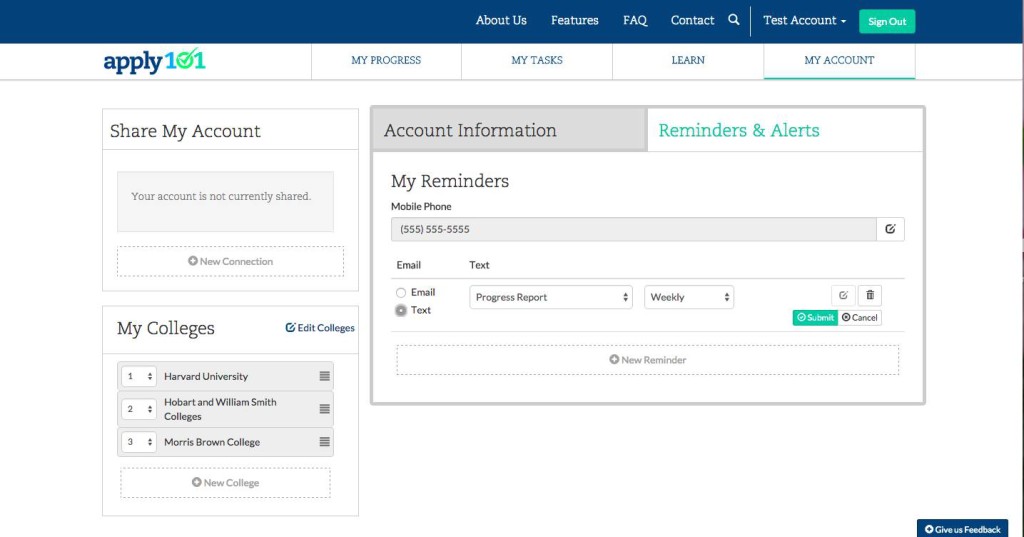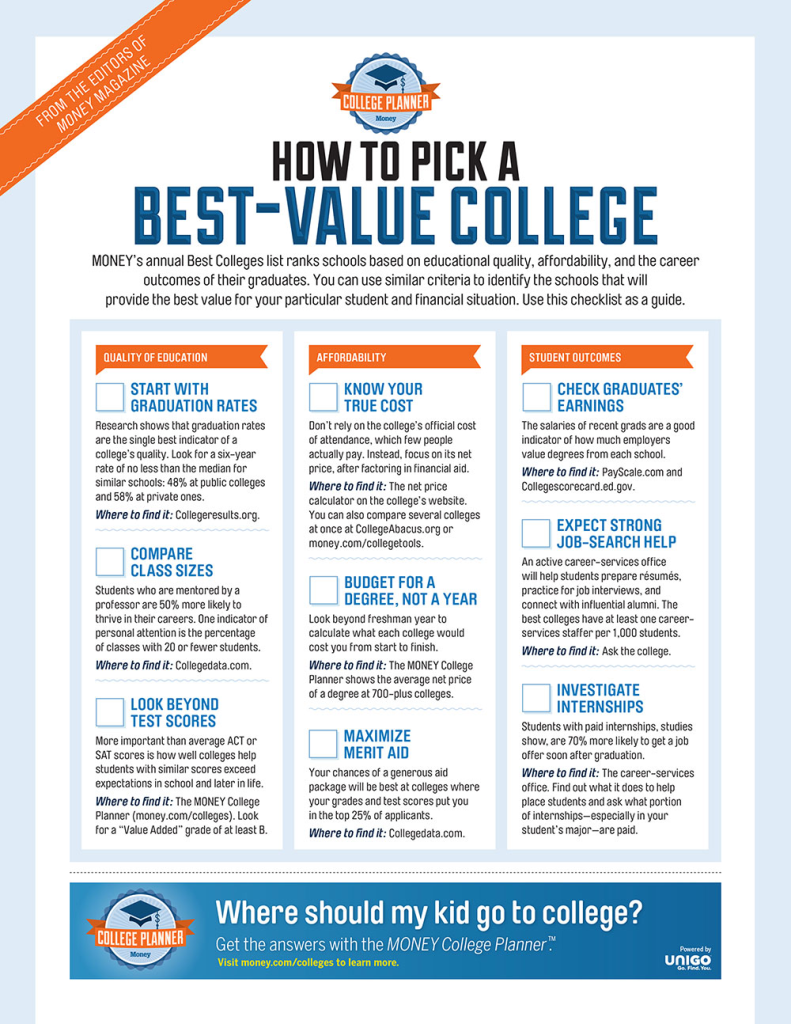
Parenting a college-bound teen is a challenge. How much should you push? How much should you help? Where do you draw the line? How involved should you be? How do you help your student fulfill his college dreams?
Here are 10 tips for parents that should answer your questions:
10 Tips for Parents of High School Students
1. Don’t overparent
Much has been written lately about the damages overparenting does to students. Step aside and let your student take the wheel.
2. Make a visit to your teen’s counselor
Let the counselor know that you intend to be an involved parent and establish a relationship at the start. The counselor is an important source of information and of course guidance regarding your teen’s college pursuit.
3. Establish relationships with teachers and staff
Since most parents tend to drop out when their teen reaches high school, it’s crucial that you make it clear to the educators that you will be a partner in educating your child. Show up at PTA meetings and parent information sessions.
4. Read all school information
This means reading the school handbook, teacher handouts, letters to parents, guidance department newsletters, any rules and policies, and homework and attendance rules.
5. Stress the importance of good attendance
Attendance is key in high school. Missing even one class can put the student behind. Schedule appointments, when possible, before and after school. If there is an absence, make sure your teen does the make up work in a timely manner.
6. Encourage strong study habits
These habits will follow your teen to college. Set aside a regularly scheduled study time. Studying needs to be a priority before any added activities.
7. Stress regular contact with teachers and counselors
This contact will play an important role when your teen needs recommendation letters. It will also establish in the minds of these educators that he or she means business.
8. Be the organization coach
If you know where everything is, have a schedule and a plan, you won’t get stressed and frustrated. It’s your job as their parent coach to help them start and maintain good organization for their date planners, notebooks, folders, files and college related materials.
9. Stay informed and involved
This does not mean camp out at the school every day and follow your teen around. It means monitoring quizzes, grades, daily homework assignments and long-term projects.
10. Be proactive when you encounter problems
All types of problems arise in high school: academic, behavioral and even social. There is a logical solution for all of them, but the key is to be aware when they arise and address them quickly.
10 Tips for Parents of Seniors
1. Do the prep work
Get ready for the mounds of catalogs, test prep booklets, flyers and email reminders. Start your filing system now, create a landing zone for all college-related materials, start adding tasks on a calendar.
2. Do your best to control your emotions
It’s going to be an emotional time for both you and your student. Angry words will be spoken if you don’t make a conscious effort to bite your tongue.
3. Prepare for rejection
The upcoming year will most likely mean that your student (and you) will have to deal with rejection. It’s not personal, but you will feel like it is.
4. Decide what role you will take
Please. I beg you. Do NOT be the parent that shoves, manipulates, and actually does the work for their student. Be the parent who encourages, supports and offers help and advice when needed.
5. Prepare for emotional outbursts
This is one of the most stressful times in your family. There will be emotional outbursts as the stress intensifies. Your student will say things she does not mean. You will lose your temper and wish you didn’t.
6. Discuss the money
If you want to avoid disappointment when offers of admission arrive, have the “money talk” before your student applies to colleges. Decide what you can afford, what you will be willing to contribute toward the costs, and what you expect your student to contribute.
7. Accept there will be consequences to actions
Your student will most likely fail or mess up at some point during senior year. Rescuing your kids all the time only makes them into dependent adults and colleges aren’t impressed with those type of students or the parents that come with them.
8. Be open to all possibilities
Be open to any college choices your student might make. You will not be the one attending the college and it’s not up to you to choose for her.
9. Don’t push-it simply won’t help
If your student is unmotivated, it’s not going to help to nag her and push her to do the college prep work. If there is one thing I learned with both of my kids (and clients), if your student is not invested in the college process she won’t be invested in college.
10. Enjoy the journey
This is an exciting time in the life of your teenager. She has worked hard and will be planning her future. Enjoy the next year, even when you feel stressed and overwhelmed.
 With today’s technology, information is everywhere–from blogs, to social media, to college websites. But when you’re looking for information wouldn’t it be great to actually SPEAK with the experts and ask questions for FREE?
With today’s technology, information is everywhere–from blogs, to social media, to college websites. But when you’re looking for information wouldn’t it be great to actually SPEAK with the experts and ask questions for FREE?









